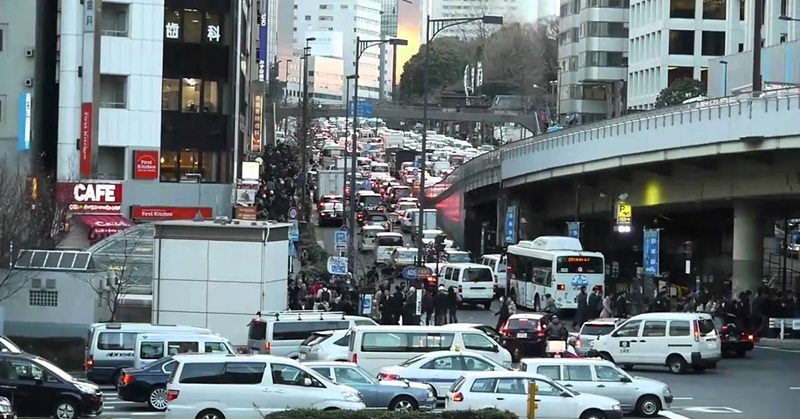With less than a year to go before the 2020 Tokyo Games begin, where hundreds and thousands of visitors including athletes and local spectators are expected to crowd the Japanese capital, local government authorities are already pre-empting traffic conditions in key areas where people are expected to gather, and in the rest of the region, and the country, as well.
Despite the shortage in labour forces, authorities have already looked into technological facilities to offer services during and even before the beginning of the major event to be held in one of the busiest cities in the world.

City-Wide Traffic Tests for 2020 Games to Commence Next Week
In line with this, a large-scale trial to relieve the traffic congestion expected during the 2020 Tokyo Olympic and Paralympic Games will kick off next Monday, about a year before the quadrennial sporting events begin, as shared in a report by the Japan Times.
The city-wide trial will involve staggered commuting and teleworking by central and Tokyo Metropolitan Government personnel, with private companies requested to join in as well. Also, traffic controls will be introduced on several roads, including the Metropolitan Expressway network.
For this initiative, authorities will review the test results to consider whether additional measures will be needed to address the traffic conditions during this period.
According to the report, more than 50,000 employees working for Fujitsu Ltd. companies and 34,000 workers at NEC Corp. will take part in the “telework” trial program being promoted by the government and the organizing committee of the Tokyo Games.
Of note, about 8 million people commute in the Tokyo metropolitan area each day, and the events are expected to draw an additional 650,000 spectators and tourists to the area on peak days between July 24 and Aug. 9, followed by the Paralympics from Aug. 25 to Sept. 6., according to an estimate by Azuma Taguchi, a professor of science and engineering at Chuo University.
Furthermore, during the Tokyo Olympics and Paralympics, arrivals of athletes and other people related to the events as well as spectators are expected to cause heavy congestion in the Tokyo metropolitan area.
In line with this, the Tokyo Games organizing committee aims to reduce traffic during the events by 10 percent on local roads and up to 30 percent on expressways.
For the upcoming trial, the metropolitan government will designate 20 weekdays between July 22 and Aug. 2 and Aug. 19 to Aug. 30 as an intensive period, during which about 10,000 workers at the head office will not show up at the office or will use staggered working hours.
In addition, in a bid to reduce congestion on trains and buses, metropolitan government personnel heading to their offices will not use these forms of transport between 8-10 a.m.
These are just some of the adjustments which the government and public office personnel will be doing for their part in curtailing traffic congestion in key areas such as public facilities within the city.